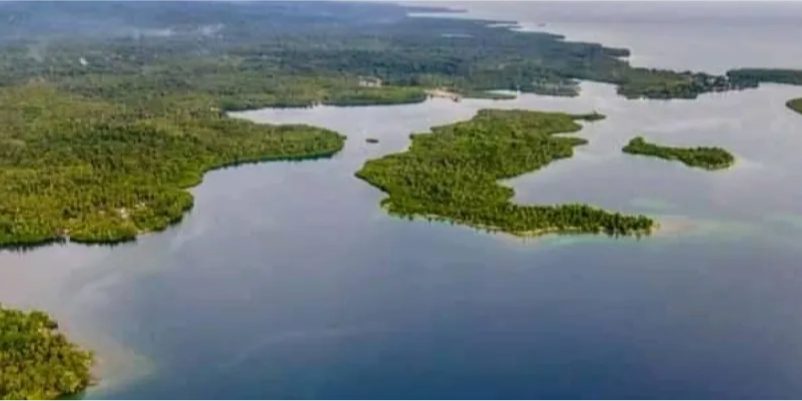Malaita’s SBD1.6 billion Bina Harbor International Seaport Project – who will fund it? GNUT is talking with development partners to provided needed financial support
AS the dust settles on the festivities marking the 41st Anniversary of Malaita’s 2nd Appointed Day, the search is on for USD200 million or SBD1.6 billion to develop the project now seen as the last frontier to overcoming Malaita’s hurdle to economic development.
Members of the public are anxious to know who will shoulder this labor-intensive project – the first ever to be undertaken on Malaita since independence 47 years ago.
Will it be the World Bank, Australia or the United States and its other allies? Or will it be the People’s Republic of China, Solomon Islands newest diplomatic ally and development partner of choice.
Prime Minister Jeremiah Manele told the Malaita 2nd Appointed Day gathering in Auki the Bina Harbor Project would cost about USD200 million (about SBD1.6 billion).
“The Bina Harbor development will cost the government about USD200 million dollars and we are currently talking with our development partners to provide the financial support we need.”
“We are also currently talking to potential investors. These are global players in the fisheries sector. If work continues according to our schedule, the Project will be functional in late 2027 or early 2028,” Prime Minister Manele said.
He appealed to the people of Malaita to work together “to achieve this important national project”
“…GNUT will continue to pursue a strong development agenda in the fisheries sector. It will boost the expansion of seaweed farms around the province. From the 150 farms established in the northern region of Malaita, from Manaoba to Ata’a, we want to expand to the western and southern regions of Malaita and to the Malaita Outer islands,” he said.
“To show our seriousness and commitment, my government has allocated $10 million in the supplementary budget for seaweed expansion in the country. The Ministry of Fisheries and Marine Resources will lead the implementation of seaweed expansion activities. I have just recently arrived back from China and have secured access for our seaweed to enter the China market. This is a huge opportunity for our people to earn money,” Prime Minister Manele said.
The Prime Minister also thanked Premier Elijah Asilaua and the provincial government for allocating land for the construction of the new Malaita Fisheries Office in Auki.
“I also acknowledge the World Bank through its Pacific Regional Oceans Cape Program for Economic Resilience, for allocating funds (of) up to US$2 million [about SBD16 million) towards the building of the Malaita Fisheries Office which will also house the Ministry of Fisheries and Marine Resources Bina Office,” he said.
He appealed to the people to work together.
“We can make miracles if we work together. We can move mountains and create a peaceful and prosperous Malaita. But we must allow development to happen.
“Land disputes should not hinder development,” the Prime Minister said.
“There are ways to resolve land disputes without stopping development. I urge you all to be part of the solution, Malaita has great potential and my government is more determined than ever to make this potential become a reality,” he said.
By Alfred Sasako









